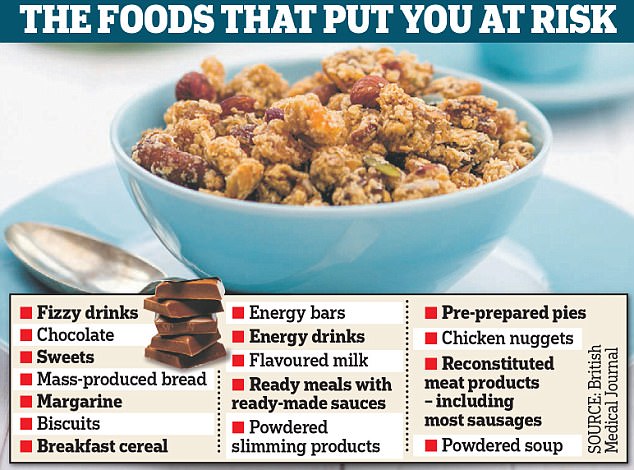

Understanding the impact of sugar and processed foods on energy is paramount for maintaining optimal health. A diet rich in these items can lead to unpredictable energy levels, impacting daily life. This article delves into the intricate connection between sugar, processed foods, and energy, exploring how these choices influence our energy levels and overall well-being. We’ll identify the harmful effects of these dietary choices and provide practical solutions for sustainable energy improvement. This article is structured as follows: first we’ll explore the underlying mechanisms behind energy fluctuations. Next, we’ll examine the various ways in which sugar and processed foods affect energy. Then, we’ll explore lifestyle changes and healthier alternatives. Lastly, we’ll offer a concise conclusion, actionable recommendations, and answers to frequently asked questions.
The Underlying Mechanisms of Energy Fluctuations
The Role of Blood Sugar
Our bodies rely on glucose, a simple sugar, as a primary energy source. When we consume significant amounts of sugar, our blood sugar levels spike rapidly. This rapid increase triggers a surge in insulin release, which is essential for glucose uptake into cells. However, this surge can lead to a subsequent drop in blood sugar, leaving you feeling fatigued and drained of energy. This cycle can happen frequently for individuals consuming high sugar/processed food diets.
The Impact of Insulin Resistance
Chronic consumption of sugar and processed foods can lead to insulin resistance. This means the body’s cells become less responsive to insulin, hindering the effective uptake of glucose for energy. This can disrupt the body’s ability to regulate blood sugar and fuel cellular processes. The result can be persistent energy dips. This can have long-term health implications and potentially contribute to chronic diseases.
The Role of Gut Health
The gut microbiome plays a crucial role in energy production. High sugar and processed food consumption can drastically impact gut health, leading to an imbalance in gut flora and potentially causing inflammation. This imbalance, in turn, can contribute to fatigue and diminished energy levels. Studies show a direct link between poor gut health and reduced energy levels.
Related Post : How Popular Diets Affect Mental and Physical Health Differently
The Adverse Effects of Sugar and Processed Foods
The Crashing Effect of Sugary Snacks
The quick energy boost provided by sugary snacks is often followed by an equally rapid crash, leaving you feeling even more tired than before. This cycle of highs and lows can disrupt daily productivity and overall well-being. For example, a sugary afternoon snack may lead to a temporary surge in energy, but soon after, a substantial energy drop could occur. This is why regular snacking on high-sugar foods is not advisable.
The Hidden Sugars in Processed Foods
Processed foods often contain significant amounts of hidden sugars, contributing to the problem of blood sugar spikes and crashes. These sugars may be in the form of high-fructose corn syrup, sucrose, or other forms of added sugar. These hidden sugars often go unnoticed, leading to a gradual but consistent accumulation of sugar intake, resulting in a gradual decline in energy levels.
The Impact on Appetite Regulation
Processed foods are frequently high in salt and unhealthy fats. This combination can interfere with the body’s natural appetite-regulating mechanisms. Over time, this can lead to cravings for these processed foods and subsequently negatively impact one’s energy levels.
Lifestyle Changes for Sustainable Energy
Prioritizing Whole, Unprocessed Foods
Opting for whole, unprocessed foods is crucial for maintaining stable energy levels. Focus on fruits, vegetables, lean proteins, and whole grains. These foods provide sustained energy release and essential nutrients without the negative impacts of processed sugars. Eating whole foods can greatly benefit long-term energy levels and prevent energy spikes and crashes.
Creating a Balanced Diet
A balanced diet that encompasses various nutrient groups is essential for sustained energy. Consider foods with complex carbohydrates for sustained energy, healthy fats for sustained energy throughout the day and protein for muscle building and repair, to name a few examples. This ensures the body receives the nutrients it needs to function optimally.
Regular Physical Activity
In addition to dietary changes, incorporating regular physical activity is vital. Exercise helps regulate blood sugar levels and boosts energy production. Aim for at least 30 minutes of moderate-intensity exercise most days of the week. This helps improve metabolic function and promote energy levels.
Healthy Alternatives to Sugar and Processed Foods
Natural Sweeteners and Sugar Substitutes
Explore natural sweeteners and sugar substitutes as alternatives to refined sugar. Consider honey, maple syrup, or stevia as options. These alternatives can satisfy sweet cravings and provide natural energy. However, moderation is key to avoid adverse effects.
Homemade Snacks and Meals
Creating homemade snacks and meals gives you control over the ingredients and reduces hidden sugars and unhealthy additives. This helps you to ensure your diet is balanced with whole foods. You’ll experience a significant reduction in sugar and increase in overall energy levels.
Hydration and Stress Management
Staying properly hydrated is key for energy levels. Dehydration can lead to fatigue. Stress can also significantly impact energy levels, so incorporating stress-reducing techniques, such as meditation or yoga, can greatly improve overall well-being. This will help improve one’s energy levels and help minimize overall impact on energy.
Conclusion
How can I identify hidden sugars in my diet?
What are the long-term health consequences of consuming a lot of sugar and processed foods?
What are some quick and easy ways to make healthier food choices?
Consider swapping processed snacks for fresh fruit or vegetables, or making meals at home instead of eating out. Incorporating more fruits and vegetables into your meals, even in small amounts, can make a big difference in your energy levels.
In conclusion, understanding the impact of sugar and processed foods on energy levels is crucial for maintaining optimal health and well-being. By making informed choices and adopting a balanced diet, you can significantly improve your energy levels and overall health. Consider consulting a registered dietitian or nutritionist for personalized advice and support in crafting a sustainable eating plan. This plan should focus on whole, unprocessed foods, and minimizing intake of sugary and processed items.